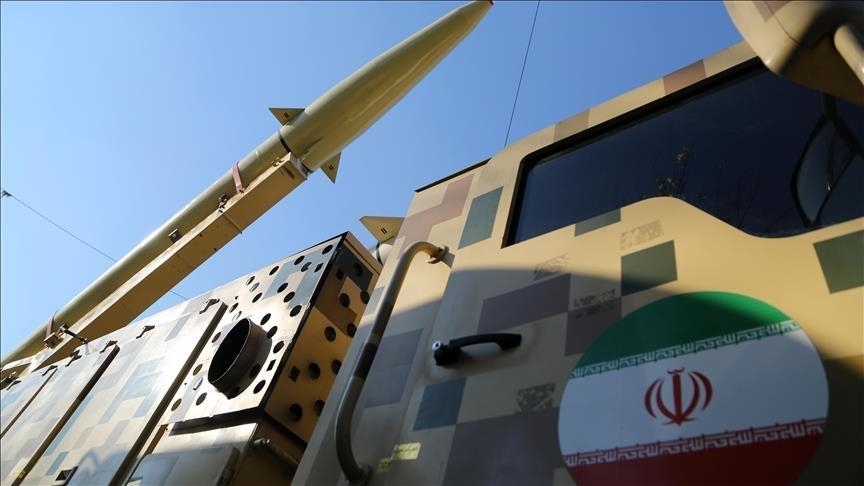Iran retains 'considerable' capability to target US forces despite strategic weakening: US CENTCOM nominee
Navy Vice Adm. Charles Cooper warns that Tehran remains 'number one source of regional instability,' 'terror throughout the world' during Senate confirmation

ISTANBUL
Iran maintains "considerable tactical capability" to target US forces despite being strategically weakened since Oct. 7, a top US military nominee told senators Tuesday.
Navy Vice Adm. Charles Cooper II, nominated to lead US Central Command (CENTCOM), warned that Iran still poses severe threats to American troops worldwide during his Senate Armed Services Committee confirmation hearing.
"They possess considerable tactical capability, one element of which we saw yesterday," Cooper said, referring to Iran's retaliatory attacks on the US Al Udeid Air Base in Qatar.
Cooper described Iran as "the number one source of instability in the region" and "sponsor of terror throughout the world," agreeing with a senator who said the country has been "terrorizing America and the civilized world for 46 years."
He said the US needs to be “in a three-point stance, ready to go every single day" against the Iranian threat.
"At the strategic level, I think they've been weakened since the events of 7 October. At the tactical level, I think they've been degraded,” Cooper noted.
The admiral acknowledged that the US military actions against Iranian nuclear facilities over the weekend benefited Israeli operations, though he declined to provide specifics. "I think it is fair to say … that there were Israeli actions that we benefited from, but were not directly ... associated with this specific operation," he said.
Also speaking about a potential closure of Strait of Hormuz by Iran, Cooper said: "The key to this is getting to the left of the problem, establishing a deterrent posture, which we have today, and then keeping our eyes on Iranian activity, which is exactly what the US military is doing today." He affirmed that he would continue to ensure that the status quo continues, if confirmed.
Maj. Gen. Esmaeil Kowsari, a member of the parliament’s National Security Commission, said Sunday the Iranian parliament decided to close the Strait of Hormuz after the US attacks but the final verdict is the Supreme National Security Council’s to make. However, it currently seems unlikely because the US halted the attacks and Israel and Iran agreed on a ceasefire.
Moreover, US President Donald Trump said Tuesday that "China can now continue to purchase Oil from Iran," which hints at the continuation of navigation in the Hormuz Strait, which handles much of Iran's petroleum shipments to China.
Stability in Syria translates into US security
Cooper emphasized that stability in Syria directly translates to US security by helping suppress threats from the ISIS (Daesh) terror group.
"ISIS thrives in chaos," he said. "If the government of Syria can help suppress the ISIS threat, along with the US forces in the region, that stability helps create our own security."
Cooper said the Syrian government shares the US counter-ISIS mission perspective.
"Everything we do in Syria will be diplomatically led, and I think we're heading in a good direction," he added.
The nominee said that the US and the Houthi group have been respecting a ceasefire agreed to in May after the US bombed the group for days. "If the Houthis didn't shoot at us, we wouldn't shoot at them,” he said.
He also highlighted the challenge posed by the Yemeni group, assessing that it is “likely to become a persistent problem that the US will face in the future."
Anadolu Agency website contains only a portion of the news stories offered to subscribers in the AA News Broadcasting System (HAS), and in summarized form. Please contact us for subscription options.







